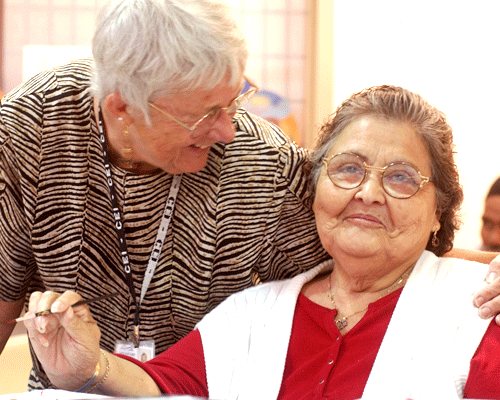
Latino, Asian and black people are the fastest growing segment of the older population in the United States. The number of older minorities is projected to increase five hundred per cent from about 6.4 million in 2003 to 34.7 million in 2050. Asians and Hispanics tend to have higher life expectancies at older ages: At age 65 Asian and Hispanic men are expected to live about 19 more years, two years longer than white men; at age 65 Asian and Hispanic women are expected to live about 23 more years, three years longer than white women.
The realities of an aging population framed the discussion by healthcare service providers, senior advocates, influential policymakers and a group of seniors who gathered recently at the Bay Area Senior Health Policy Forum in San Francisco to address the state’s health care crisis and the challenges facing Bay Area seniors.
“California’s over-65 population is rapidly increasing and will double in the next 25 years, while the safety net is eroding rapidly due to the recession and less money from the federal government,” says Peter Szutu, CEO of Center for Elders’ Independence. “The Bay Area Senior Health Policy Forum was designed to strengthen our resolve, knowledge and advocacy skills in this daunting economic and political environment and ultimately, together, strengthen the safety net for California’s seniors.”
Adding to the growing needs of older black and Hispanic people is their higher rates of disabilities: Among the population 65 and older, about 53% of blacks reported having at least one disability in 2000 as did 49% of Hispanics, 41% of Asians, and 40% of non-Hispanic whites.
“We don’t have a large number of Latinos coming to the center,” says Szutu. “However, we are hiring more bicultural workers and are working to increase our capacity to better serve the Hispanic community.”
Szutu points out the importance of family, church and neighbor support for seniors wanting to be to be independent and stay at home.
“Especially in the Latino community there is a little more family cohesiveness and that is a great cultural strength,” he says.
“That’s good because government support is eroding and so if the family support is not there, it will be very difficult.”
